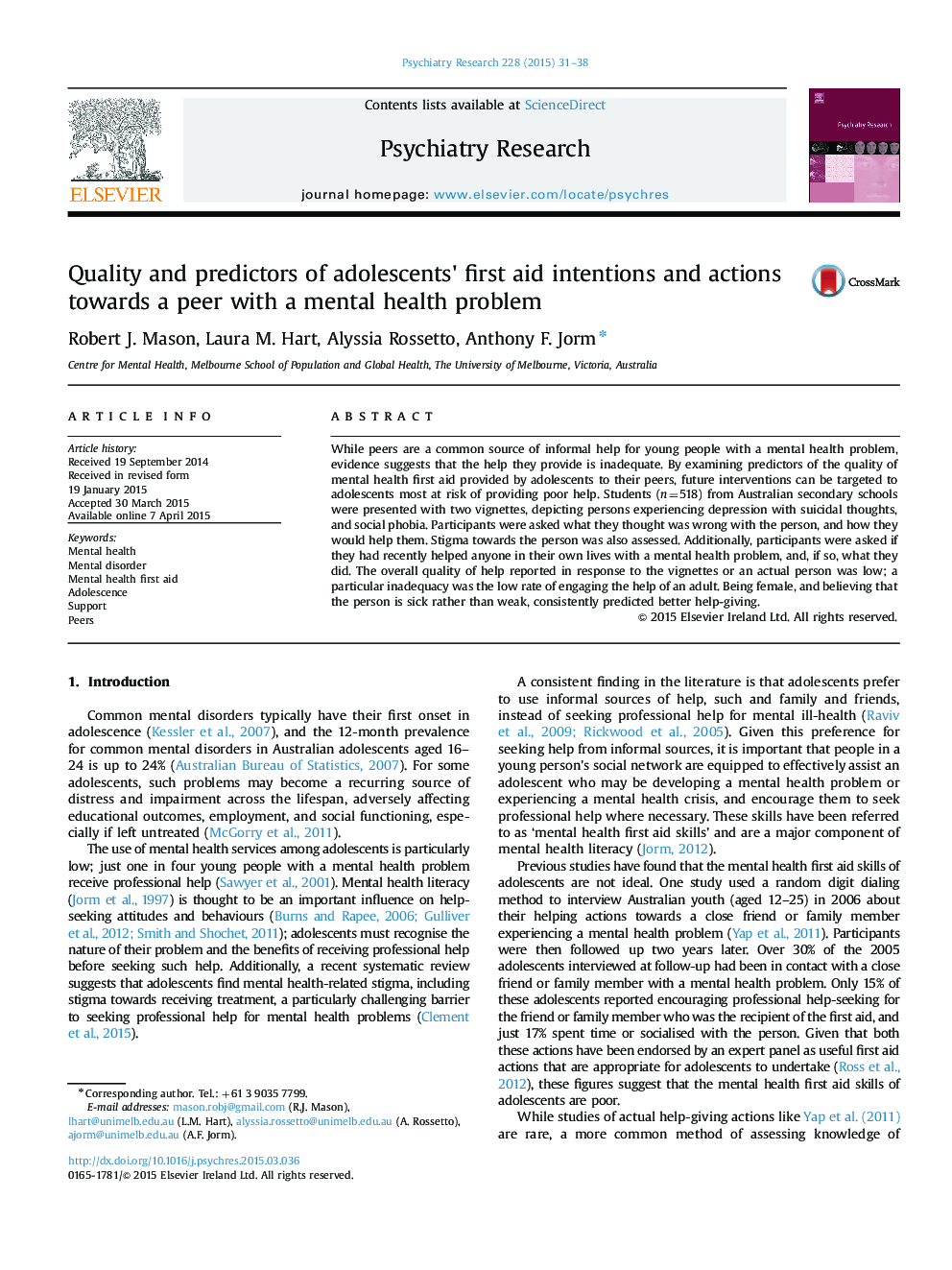| Article ID | Journal | Published Year | Pages | File Type |
|---|---|---|---|---|
| 332900 | Psychiatry Research | 2015 | 8 Pages |
•54% of adolescents had encountered someone with a mental illness in the past 3 months.•Most adolescents were able to mention at least one helpful first aid behaviour.•Rates of encouraging adult help for a crisis situation need improvement.•Females consistently provided better quality first aid responses.•Certain types of stigma had a negative effect on first aid quality.
While peers are a common source of informal help for young people with a mental health problem, evidence suggests that the help they provide is inadequate. By examining predictors of the quality of mental health first aid provided by adolescents to their peers, future interventions can be targeted to adolescents most at risk of providing poor help. Students (n=518) from Australian secondary schools were presented with two vignettes, depicting persons experiencing depression with suicidal thoughts, and social phobia. Participants were asked what they thought was wrong with the person, and how they would help them. Stigma towards the person was also assessed. Additionally, participants were asked if they had recently helped anyone in their own lives with a mental health problem, and, if so, what they did. The overall quality of help reported in response to the vignettes or an actual person was low; a particular inadequacy was the low rate of engaging the help of an adult. Being female, and believing that the person is sick rather than weak, consistently predicted better help-giving.
